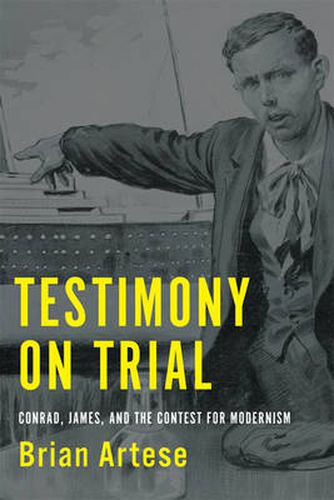Readings Newsletter
Become a Readings Member to make your shopping experience even easier.
Sign in or sign up for free!
You’re not far away from qualifying for FREE standard shipping within Australia
You’ve qualified for FREE standard shipping within Australia
The cart is loading…






Who is a more authoritative source of information - the person who experiences it firsthand, or a more ‘impartial’ authority? In the late nineteenth century, testimony became a common feature of literary works both fact and fiction. But with the rise of new journalism, the power of testimony could be undermined by anonymous, institutional voices - a Victorian subversion which continues to this day.
Testimony on Trial examines the conflicts over testimony through the eyes of two of its major combatants, Joseph Conrad and Henry James. Brian Artese finds an overlooked yet direct inspiration for Heart of Darkness in the anti-testimonial scheming of Henry Morton Stanley and the New York Herald. Through new readings of works including Lord Jim and The Portrait of a Lady, Artese demonstrates how the cultural conditions that worked against testimony fed into a nascent conflict about the meaning of modernism itself.
$9.00 standard shipping within Australia
FREE standard shipping within Australia for orders over $100.00
Express & International shipping calculated at checkout
Who is a more authoritative source of information - the person who experiences it firsthand, or a more ‘impartial’ authority? In the late nineteenth century, testimony became a common feature of literary works both fact and fiction. But with the rise of new journalism, the power of testimony could be undermined by anonymous, institutional voices - a Victorian subversion which continues to this day.
Testimony on Trial examines the conflicts over testimony through the eyes of two of its major combatants, Joseph Conrad and Henry James. Brian Artese finds an overlooked yet direct inspiration for Heart of Darkness in the anti-testimonial scheming of Henry Morton Stanley and the New York Herald. Through new readings of works including Lord Jim and The Portrait of a Lady, Artese demonstrates how the cultural conditions that worked against testimony fed into a nascent conflict about the meaning of modernism itself.